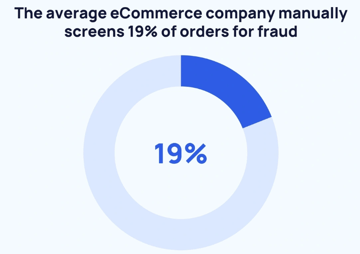The AI Revolution in eCommerce
In today's hyper-connected digital landscape, eCommerce has emerged as a cornerstone of modern business. With the exponential growth of online shopping, brands are constantly seeking innovative strategies to stay ahead in the competitive market. Among these strategies, artificial intelligence (AI) has emerged as a game-changer, revolutionizing the way brands engage with customers, optimize operations, and drive sales.
The Rise of eCommerce and the Digital Shopper
From its humble beginnings to the present-day juggernaut, eCommerce has witnessed an unprecedented surge over the last several years. The convenience, accessibility, and variety offered by online shopping platforms have fueled this growth, fundamentally altering consumer behavior and preferences. The evolution of technology, coupled with changing consumer preferences and market dynamics, has propelled eCommerce into the forefront of retail.
Today's consumers demand personalized experiences, seamless transactions, and instant gratification. Understanding their needs and preferences is paramount for brands looking to thrive in the digital marketplace. With smartphones, tablets, and other internet-enabled devices, consumers have access to a wealth of information at their fingertips. From product specifications and user reviews to price comparisons and recommendations, consumers can conduct thorough research before making purchasing decisions, empowering them to make informed choices.
In a digital world, consumers have become increasingly tech-savvy, adept at navigating online shopping platforms, leveraging search engines, social media, and mobile apps to discover new products, connect with brands, and engage with fellow shoppers. They expect brands to understand their needs and preferences, anticipate their desires, and deliver tailored solutions that resonate with them on a personal level. As a matter of fact, 56% of consumers will become repeat buyers from a brand when they offer personalized experiences. Meeting these expectations is essential for brands looking to thrive in the fiercely competitive digital marketplace.
Leveraging AI for Enhanced Customer Experience
AI-powered recommendation engines utilize advanced algorithms to sift through vast amounts of data, encompassing customer preferences, purchase history, browsing behavior, and demographic information. By leveraging this wealth of data, these recommendation engines craft personalized product suggestions tailored to each individual customer. Whether it's suggesting complementary products based on past purchases or highlighting items that align with a customer's browsing history, these AI-driven recommendations aim to enhance the shopping experience by presenting customers with relevant options that resonate with their unique tastes and preferences. As a result, customers are more likely to find products that genuinely appeal to them, leading to increased satisfaction and a higher likelihood of making repeat purchases.
In addition to recommendation engines, AI-driven chatbots and virtual assistants have revolutionized the way brands engage with customers, particularly in terms of customer support and service. These AI-powered assistants are available round-the-clock, providing instant responses to customer queries, troubleshooting issues, and guiding shoppers through every step of their purchasing journey. In fact, AI chatbots can result in increased revenue of up to 15% for eCommerce brands. This seamless and efficient interaction not only improves customer satisfaction but also fosters stronger relationships between brands and customers. By providing timely and personalized assistance, brands can build trust and loyalty, ultimately leading to increased customer retention and advocacy.
Optimizing Operations with AI
- Supply Chain Management: AI streamlines supply chain operations by optimizing logistics, forecasting demand, and mitigating risks. In fact, logistics costs have been reduced by up to 15% by early-AI adopters. Predictive analytics and machine learning algorithms identify inefficiencies, reduce costs, and ensure timely delivery of goods, enhancing overall efficiency and agility.
- Inventory Management: The average inventory accuracy in the US retail industry is 63%. AI-powered inventory management systems automate inventory replenishment, monitor stock levels in real-time, and identify slow-moving or obsolete items. By optimizing inventory turnover and minimizing holding costs, brands can improve profitability and customer satisfaction.
- Fraud Detection and Security: eCommerce fraud reached $48 billion in 2023, a $7 billion increase
 from 2022. While this number is increasing, only a small number of orders can be screened manually, as can be seen in the chart to the right. AI algorithms analyze transaction patterns, detect anomalies, and identify potential fraudulent activities, safeguarding eCommerce platforms from cyber threats and financial fraud. By enhancing security measures, brands can build trust, protect sensitive data, and uphold their reputation.
from 2022. While this number is increasing, only a small number of orders can be screened manually, as can be seen in the chart to the right. AI algorithms analyze transaction patterns, detect anomalies, and identify potential fraudulent activities, safeguarding eCommerce platforms from cyber threats and financial fraud. By enhancing security measures, brands can build trust, protect sensitive data, and uphold their reputation.
AI-driven Marketing Strategies
- Hyper-targeted Advertising: AI algorithms analyze consumer behavior, demographics, and psychographics to create hyper-targeted advertising campaigns. By delivering personalized messages across multiple channels, brands can reach the right audience, maximize engagement, and drive conversions.
- Content Optimization: AI-powered content optimization tools analyze performance metrics, user feedback, and market trends to enhance the relevance, quality, and effectiveness of marketing content. In fact, AI-powered content optimization tools can help increase organic traffic by upwards of 200%. By creating compelling and resonant content, brands can captivate audiences, foster brand loyalty, and drive brand advocacy.
- Social Media Management: AI-driven social media management tools automate content scheduling, analyze engagement metrics, and identify trending topics and hashtags. By leveraging AI for social media marketing, brands can amplify their reach, foster community engagement, and cultivate brand ambassadors.
Ethical Considerations and Challenges
- Data Privacy and Security: As AI becomes increasingly integrated into eCommerce operations, concerns regarding data privacy and security are paramount. Brands must prioritize transparency, consent, and compliance with regulatory frameworks to safeguard consumer trust and mitigate risks associated with data breaches and misuse.
- Bias and Fairness: AI algorithms are susceptible to bias, reflecting the inherent biases present in training data and algorithms. Brands must actively mitigate bias by implementing fairness-aware AI models, diverse datasets, and rigorous testing protocols to ensure equitable outcomes and foster inclusivity.
The integration of AI into eCommerce has transformed the landscape of brand strategy, empowering businesses to deliver personalized experiences, optimize operations, and drive sustainable growth. As AI continues to evolve, brands must adapt and innovate, harnessing its power to anticipate customer needs, navigate market dynamics, and forge deeper connections with consumers in the digital age. By embracing AI-driven solutions and ethical principles, brands can unlock new opportunities, enhance competitiveness, and shape the future of eCommerce in a rapidly changing world.
More About aiCommerce
aiCommerce is a global digital marketing agency with a focus on retail and eCommerce marketplaces. aiCommerce can help your brand grow across eCommerce channels to gain brand awareness, visibility, and increase sales, all backed by our 90-day guarantee. Now is the perfect time to utilize our eCommerce experts to help grow your business. Click the button below to learn more!




